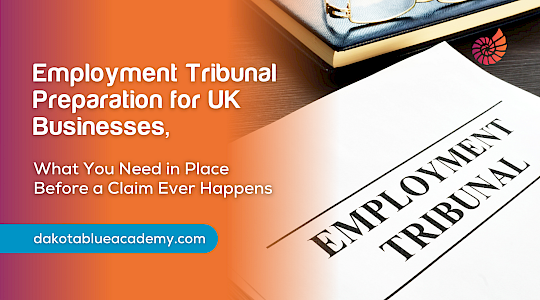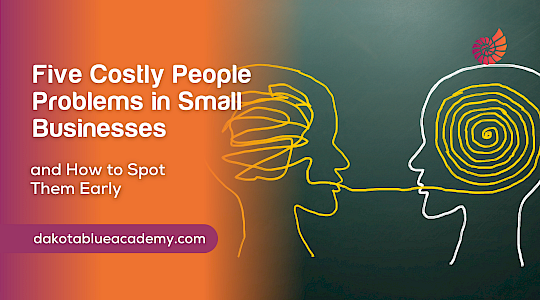
What 2025 Taught Us About the Future of Workplace Learning
25th November 2025
If 2024 was the year everyone talked about change, 2025 was the year businesses had to adapt to it. Small and medium sized businesses in the UK felt the pressure first. Rapid shifts in technology, tighter budgets and rising expectations from employees meant that traditional training no longer kept pace with what businesses needed.
Learning became less about sending people on courses and more about helping them adapt quickly, build confidence and support business priorities. As we head into 2026, these lessons matter more than ever.
Here is what 2025 taught us and how you can use those insights to strengthen your business next year.
1. Skills became the new currency
In 2025, many businesses found that job titles mattered far less than core skills like communication, critical thinking and problem solving. Teams needed people who could adapt, not just complete tasks. This shift pushed learning away from one off training sessions and towards continuous skill building.
What this means for your business in 2026
Take a moment to map the skills your team actually needs this year. Look at where the gaps sit and what is getting in the way of performance. Then build learning around those gaps rather than job roles. This makes development more practical and directly tied to results.
2. Managers needed more support than ever
2025 proved something many business owners already suspected. Most performance issues start with unsupported managers who were promoted because they were good at their job but never trained in how to lead people. When pressure increased many managers felt out of their depth.
What this means for 2026
Make manager development a priority. Even short, focused sessions on feedback, handling tricky conversations or managing performance will have a bigger impact on your business than broad training programmes. When managers feel confident, teams perform better, engagement improves and issues are solved earlier.
3. Learning had to be flexible to be effective
Last year employees needed learning that fitted around busy roles, not the other way round. Micro learning, short videos, practical checklists and on demand guides became far more valuable than long workshops. Small businesses found this approach cheaper, easier to maintain and more useful for employees.
What this means for your business
Offer learning in bite sized pieces that people can use straight away. Focus on practical tools not theory. If someone can read it, apply it and see a result that same day you are on the right track.
4. Personalisation started to replace generic training
2025 highlighted that employees develop faster when learning reflects their role, strengths and challenges. People want to feel supported in the areas that matter to them. This meant businesses started offering tailored development paths instead of one size fits all training.
What this means for 2026
You do not need expensive systems to personalise learning. Start by asking your employees what they want to get better at. Link their goals to your business priorities. Then give them access to resources that help them build those skills step by step.
5. Learning became central to retention
The biggest wake up call in 2025 was how quickly people moved on when they felt unsupported. Employees stayed where they felt they were developing, valued and given room to grow. For many small businesses this forced a rethink on how learning feeds into retention, culture and long term stability.
What this means for 2026
If you want to keep your best people, show them you are invested in their growth. Even small improvements in your learning approach can give employees a stronger sense of commitment and belonging.
Bringing this all together for 2026
This year learning needs to be practical, flexible and tied to your business goals. You do not need a big budget or a full HR team to get it right. You simply need the right tools, the right focus and a clear understanding of what skills will drive your business forward.
That is exactly why we created Dakota Blue Academy. It gives you everything you need to build confident managers, skilled teams and a stronger business, all in one place and all designed with small businesses in mind.
If you want to turn these insights into a real development plan for your team, join Dakota Blue Academy today. You will get access to our practical guides, templates, checklists and how to resources that help you build better learning and better performance across your business.


